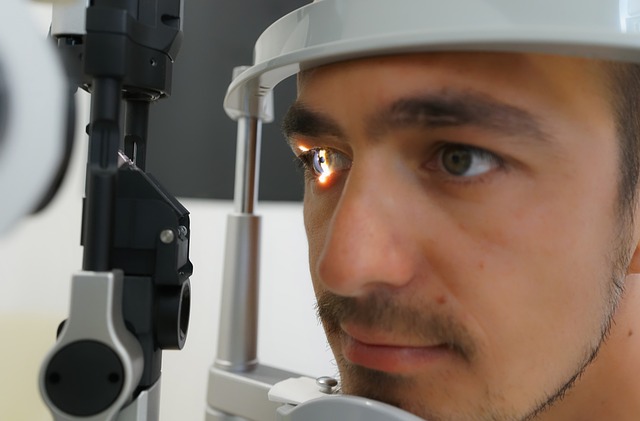The UK Advanced Thyroid Blood Test is a comprehensive tool for healthcare professionals, offering deep insights into liver health by measuring key hormones (T4, T3, TSH). Indicated for suspected liver diseases, chronic conditions, or treatment efficacy evaluation, these tests enable early detection of abnormalities, facilitate personalized treatments, and predict patient outcomes. Interpreted alongside patient symptoms, history, and other data, the test results guide accurate diagnoses and effective treatment planning for thyroid-related conditions, enhancing care for liver-related disorders.
In the realm of medical diagnostics, advanced liver function tests (ALFTs) play a pivotal role in assessing hepatic health. This article delves into the intricacies of ALFTs, focusing on the UK Advanced Thyroid Blood Test—a game-changer in detecting thyroid disorders. We explore key parameters, interpretations, and the profound impact of these tests on clinical decision-making. Understanding ALFTs can enhance diagnosis and management, especially in navigating complex cases. By mastering these advanced tools, medical professionals can ensure optimal patient care.
- Understanding Advanced Liver Function Tests: Indications and Benefits
- UK Advanced Thyroid Blood Test: Key Parameters and Interpretations
- Implementing Results: Clinical Decision-Making for Medical Professionals
Understanding Advanced Liver Function Tests: Indications and Benefits
Advanced liver function tests, such as those available in the UK through advanced thyroid blood tests, are crucial tools for medical professionals to gain a deeper understanding of liver health and diagnose potential issues. These tests go beyond basic liver enzymes, providing comprehensive insights into various liver parameters. Indications for conducting these advanced tests include suspected liver diseases, monitoring patients with chronic liver conditions, or evaluating the effectiveness of treatments.
The benefits are multifold: they enable early detection of subtle liver abnormalities, facilitate personalized treatment plans, and aid in predicting patient outcomes. By accessing a wide range of markers, healthcare providers can make more informed decisions, ultimately improving patient care and management strategies for liver-related disorders.
UK Advanced Thyroid Blood Test: Key Parameters and Interpretations
In the UK, the Advanced Thyroid Blood Test is a comprehensive assessment tool for medical professionals to evaluate thyroid function and diagnose potential disorders. This test measures several key parameters that offer insights into both thyroid hormone production and overall gland health. The primary indicators include thyroxine (T4), triiodothyronine (T3), and thyroid-stimulating hormone (TSH). T4 is produced by the thyroid and plays a crucial role in metabolic regulation, while T3, generated from T4, is even more potent. TSH, on the other hand, is released by the pituitary gland to control thyroid activity.
Interpretations of these values are critical. Normal ranges vary slightly between labs but generally, T4 levels between 9 and 15 micrograms per deciliter (mcg/dL) are considered optimal for adults. T3 levels typically fall between 0.6 and 2.0 nanograms per deciliter (ng/dL), and TSH usually resides between 0.4 and 4.0 milli-international units per liter (mIU/L). Deviations from these ranges can indicate conditions like hypothyroidism, hyperthyroidism, or thyroiditis. Medical professionals use these results to guide treatment decisions, ensuring optimal thyroid function for overall health and well-being.
Implementing Results: Clinical Decision-Making for Medical Professionals
When medical professionals interpret results from a UK Advanced Thyroid Blood Test, they must consider each patient’s unique clinical context. While the test provides comprehensive insights into thyroid function, correlating these findings with symptoms, medical history, and other diagnostic data is crucial for accurate diagnosis and effective treatment planning.
Actionable outcomes depend on this integrated approach to decision-making. Abnormal thyroid levels can indicate a range of conditions, from autoimmune disorders like Hashimoto’s thyroiditis to nodules or hyperthyroidism. Medical professionals must use test results as a guide, balancing them with their expertise and patient-specific factors to determine the next steps, whether that’s further investigation, monitoring, or initiating targeted treatment.
Advanced liver function tests, such as the UK Advanced Thyroid Blood Test, offer invaluable insights into liver health. By understanding key parameters and accurate interpretations, medical professionals can make informed clinical decisions. These tests not only aid in diagnosing liver conditions but also guide treatment strategies, ultimately improving patient outcomes. The comprehensive analysis of thyroid blood tests is a game-changer in managing liver-related disorders, ensuring folks receive the best care possible.
